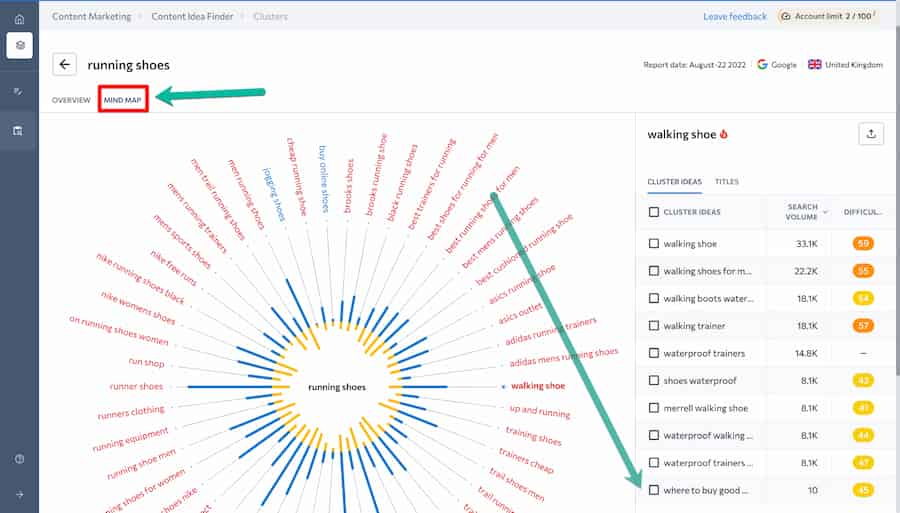How to Turn Your Blog into a Trust Development Machine
What makes business blogging such a good idea?It’s the ability to accomplish many important goals, including branding, product positioning, context management, sentiment control, and many more.Know, Like and Trust (KLT) is a crucial combination of elements, and very few media can match the power of a blog to generate “KLT” in a short time – especially if done right.Blogs can make brands informative and relatable – a powerful combination for building brand loyalty and ambassadorship.Here’s why (and how) to turn your blog into the ultimate KLT generation machine:
1. Know: Brand awareness and findability
Your blog is the ideal way to grow awareness of your brand in a most non-intrusive, non-promotional way.The creation of original blog content and the sharing of it via social media, your newsletter, and an RSS feed is a great way to remind your audience of your business, grow awareness, and keep your brand “top of mind.”Also, generating good content will allow you to rank in Google and the other search engines over time, leading to further site findability and organic product discovery.To get your brand discovered through your blog, make sure to plan your blog’s content around searchable keywords. Identify keywords with informational intent and write articles that feature your blog as (part of) the solution to the problem behind that search query.SE Ranking’s keyword research tool allows you to brainstorm your content around searchable keywords by generating a mindmap of related terms and concepts to choose from:
Product Positioning
In addition, your blog is the ideal vehicle for allowing people to understand your core value proposition.By writing relevant content, you put your products in context, which helps product positioning and lets your target customers understand their value.You get to control that sentiment by gradually publishing more and more content showcasing your products in action in a non-promotional way.On your blog, you can combine articles, videos, pictures and audio and organize it all to highlight the most important points. You can have archives that go back years, while in social media, it’s “here today, gone tomorrow.”
2. Like: Making your brand relatable
Blogs allow people to feel “closer” to you and your companyAs mentioned above, people can find and truly get to know you via your blog. Assuming you have value to add, personality in your posts, and regular content, it’s a great medium for generating a feeling of closeness from the reader to your business.Showcase your team’s expertise, put your blog’s authors in the spotlight and encourage them to engage with their readers. Anonymous blogs exist, and some of them are successful, but if you set up a business blog to promote your brand and keep it anonymous, you are missing out on the relatability aspect of it.Readers relate to readers, and your customers will relate to your business if they know the people (authors) behind it.
- Let your business blog’s authors have a clearly visible authorship (and get recognized for it). Being recognized as an author of content will make them more inspired and motivated, and they will end up writing better and better content. Plus, public recognition nurtures brand loyalty, so you will likely notice your blog’s authors getting more excited about your brand and promoting it everywhere.
- Host some interviews and/or podcasts with your employees, letting them talk about their accomplishments, daily tasks and struggles, and coping techniques. Being featured is very inspirational for the whole team, and your customers will be curious to find out who works behind the scenes. Invite your employees and team members to collaborate on content ideas, interview topics and questions to get your whole company on board.
It is a good idea to tell your brand’s story through your blog and your customers’ story. You can feature your loyal customers and let them discuss your products and their value.A blog is a perfect medium to publicize social proof. It is also a great way to collect that proof from your customers by inviting them to post comments and share their feedback through web forms.
3. Trust: People trust brands that add value
Blogs increase trust in your abilities and grow your authorityIf your blog is not always trying to sell, to get a new subscriber, or to twist someone’s arm, it will earn credibility over time.If content consistently allows your customers to get to know and like you, they’ll start to trust you over time.People gain a comfort level with your brand by reading your “thoughts,” and generating business leads, speaking inquiries, PR opportunities, and much more.Creating truly helpful content is a commitment, but it is also the best-working content optimization tactic because Google is looking for helpful content to rank it higher. By focusing your blogging strategy on providing value, you are likely to improve your on-page engagement and your rankings – so this helps in discovery and findability too.Question research tools will help you refocus your blogging strategy (at least partially) to problem-solving. Both AnswerThePublic and BuzzSumo provide helpful tools that allow you to identify the most popular questions on your topic:
It’s not just for marketers
Blogging works in just about any niche, although it works differently. You can get much more entertaining in some industries but not in others. Keep your target audience in mind when creating your blogging strategy. In fact, always put your customer first!

